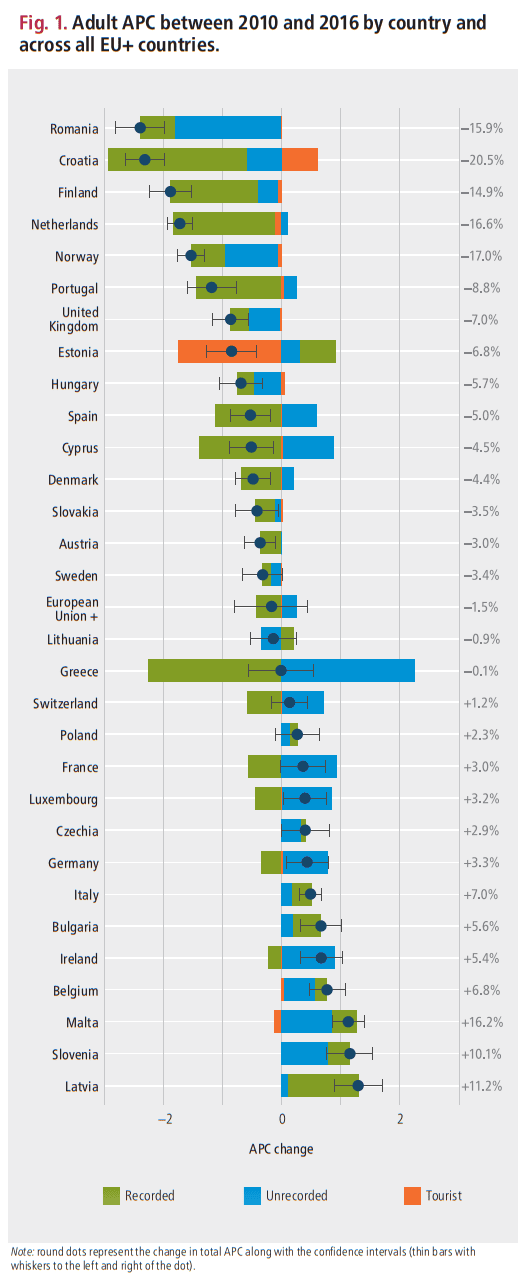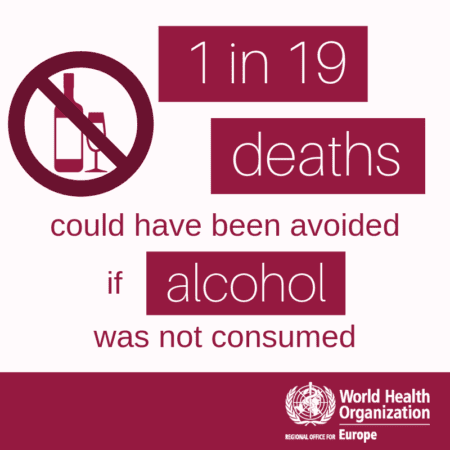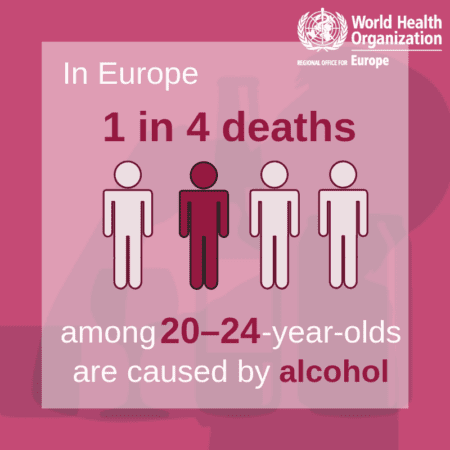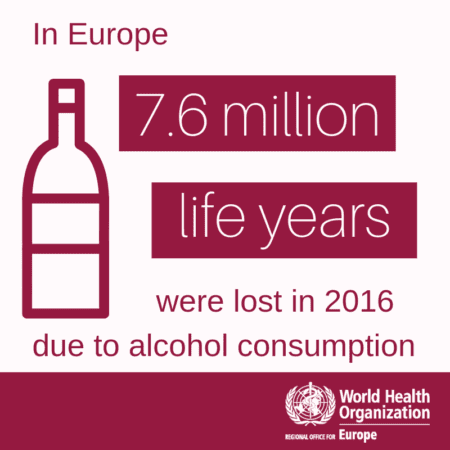WHO Illustrates Europe’s Alcohol Problem
A recent WHO report shows that rates of alcohol consumption in Europe have not dropped as expected, even though all countries have signed the “WHO European Action Plan to Reduce the Harmful Use of Alcohol 2012–2020”.
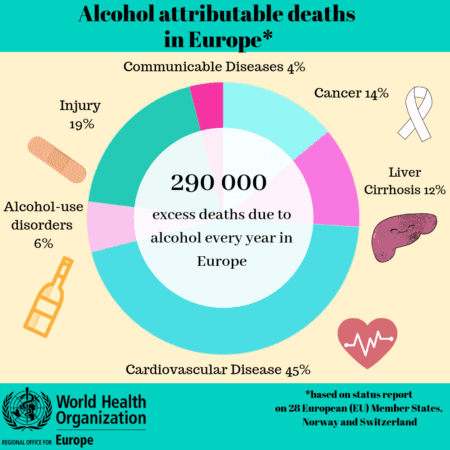 According to the “Status report on alcohol consumption, harm and policy responses in 30 European countries 2019” there was no statistically significant decline in total alcohol per capita consumption between 2010 and 2016 and the observed decreases in heavy episodic alcohol use seem to have come to a halt.
According to the “Status report on alcohol consumption, harm and policy responses in 30 European countries 2019” there was no statistically significant decline in total alcohol per capita consumption between 2010 and 2016 and the observed decreases in heavy episodic alcohol use seem to have come to a halt.
Further, over 290,000 people lose their life in Europe per year from alcohol-attributable causes, and the report urges stronger policy action by countries to help reduce the numbers.
Reductions in alcohol consumption have stalled
When excluding abstainers and former alcohol users, adults in Europe consume the equivalent of 3 bottles of wine per week. This is a high level of consumption which can lead to many health harms.
Binge alcohol use is also significant in Europe. Across the population, 30.4% of people report having consumed more than 60g of pure alcohol on a single occasion in the last 30 days – this is equivalent to more than 5 units of alcohol on 1 occasion.
Bingeing on alcohol is particularly an issue among men (47.4%), as compared to women (14.4%), and is most prevalent in the Baltic countries, Czechia, Germany and Luxembourg.
Alcohol-attributable deaths and disease
Of all alcohol-attributable deaths in the EU+ region,
- 76.4% are due to noncommunicable diseases, such as cancer, liver cirrhosis and cardiovascular disease,
- 18.3% are caused by alcohol-attributable injuries, such as those resulting from road traffic accidents, suicides and homicides.
Across the EU+ region alcohol is still responsible for 5.5% of all deaths. 291,100 people died in 2016 due to alcohol-attributable diseases, and 7.6 million years of life were lost due to either premature mortality or disability.
According to WHO, the level of alcohol-attributable deaths in adolescents and young adults has remained unacceptably high throughout Europe. 1 in every 4 deaths among young adults is caused by alcohol – especially due to injury.
When alcohol is one of the biggest killers of our young people, we cannot afford to be complacent…,” said Dr Carina Ferreira-Borges, Programme Manager for Alcohol and Illicit Drugs, WHO Regional Office for Europe, as per WHO Europe.
Most effective policies not implemented
The report urges countries to further improve policy response, using the areas defined in the European Action Plan to Reduce the Harmful Use of Alcohol 2012–2020 to maintain and accelerate progress.
The low implementation of marketing and pricing policies is of particular concern, as these are proven to be among the most effective policy measures. Countries were found to be most successful at implementing awareness-raising, driving under the influence policies and surveillance policies, which are the easiest to implement and are perceived to face the least resistance.
Alcohol consumption has decreased in many European countries, but progress is grinding to a halt. Policy-makers need to implement the strategies we know are effective, such as increasing prices, limiting availability and banning advertising.
With as many as 800 people dying every day in parts of the Region due to alcohol-attributable harm, we must do more to continue the fight,” said Dr Zsuzsanna Jakab, WHO Regional Director for Europe, as per WHO Europe.
—
For further reading:
https://movendi.ngo/press-release/europes-alcohol-epidemic-and-what-to-do-about-it/
